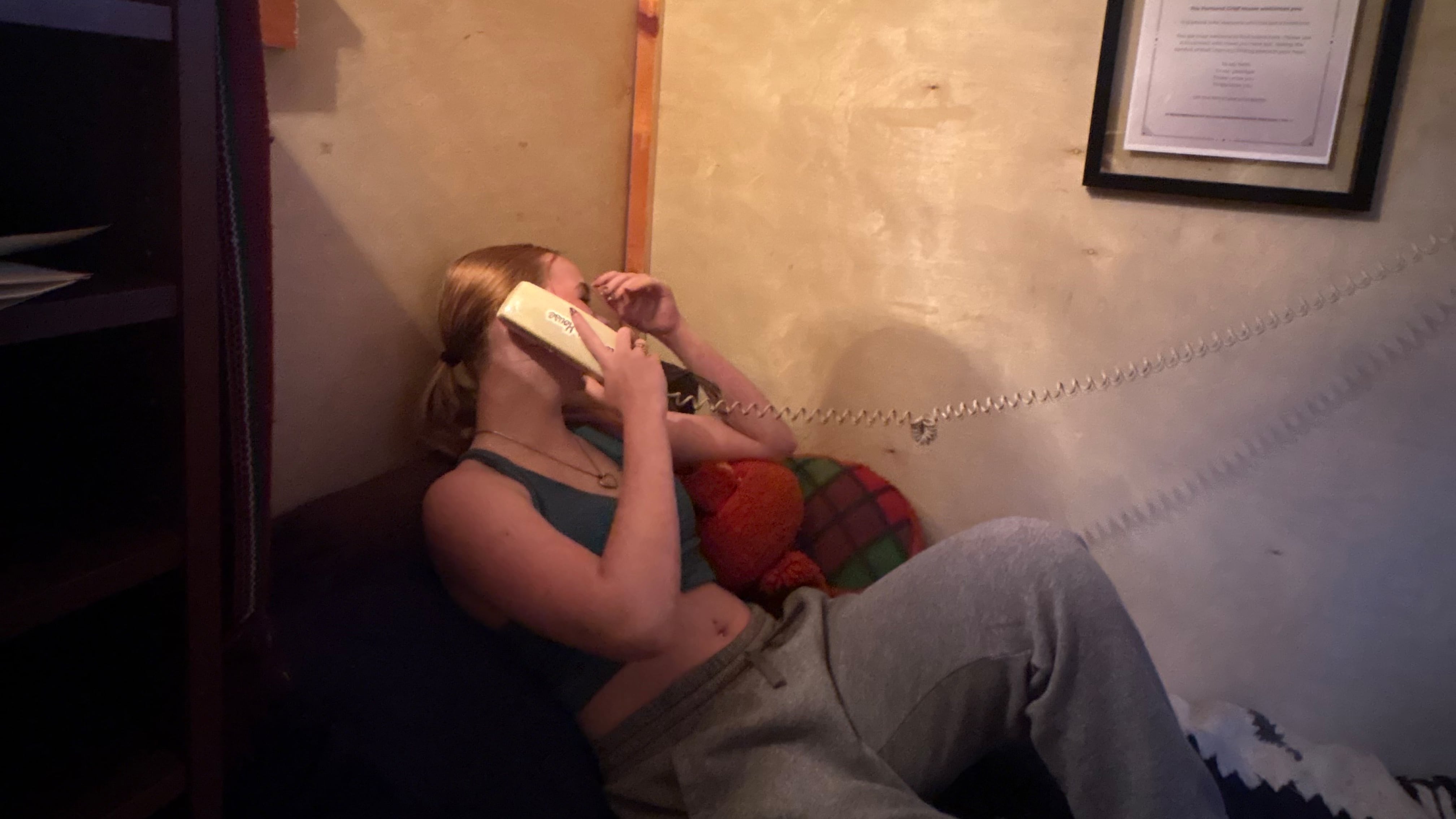Alyssa Hughes says that her brother, Jason, introduced her to the Japanese art installation concept called wind phones.
Itaru Sasaki first installed a disconnected rotary phone, which he called Kaze No Denwa, or wind phone, in his garden in 2010 to stay connected to a cousin who died from cancer. After the 2011 Tōhoku earthquake and tsunami—Japan’s strongest recorded earthquake, and the world’s fourth strongest since seismography was invented—struck, Itaru converted the Kaze No Denwa into a public phone booth overlooking the Pacific Ocean in the heavily afflicted town of Ōtsuchi, which documented the tsunami’s highest death toll.
Hughes, 16, volunteers with Grief House, a nonprofit organization operating in Portland and Decatur, Ga., to help bereaved people process their grief and find others in mourning who may be suffering similar losses. On April 16, Hughes installed a wind phone on Grief House’s grounds in St. Johns after Hughes says Grief House co-founder Laura Green gave her complete creative freedom with how and where to put it together. As with Grief House’s other amenities, the wind phone—hung in a cozy lounge repurposed from a chicken coop—is available by appointment.
“It’s private but still kind of outdoorsy and really comfortable,” Hughes tells WW.
Hughes’ father passed away last summer, and though she says she still texts his former phone number, she found solace in using a wind phone to process her grief.
“It was honestly really healing,” Hugh says about using the wind phone. “It’s different to be able to say things out loud and speak to him, which isn’t something I get to do very often because I don’t have a place to go and do that, and the wind phone being that place for me is special.”
According to My Wind Phone, a website tracking more than 300 public, private and traveling wind phones around the world, Grief House’s wind phone is Oregon’s fifth registered one, and the only one registered in Portland. The wind phone’s use is not tracked, but Hughes says there’s a guest book in the coop/lounge should anyone choose to sign it.
“It’s such a different feeling being able to voice my thoughts and emotions, not just toward the death of my father but to him—I don’t want to say ‘in the afterlife’ because I’m not sure what my beliefs are on that—but being able to talk to him as if he can hear me is very special,” Hughes says.
SEE IT: Grief House, 7906 N Fessenden St., griefhouse.org. Hours by appointment only.

